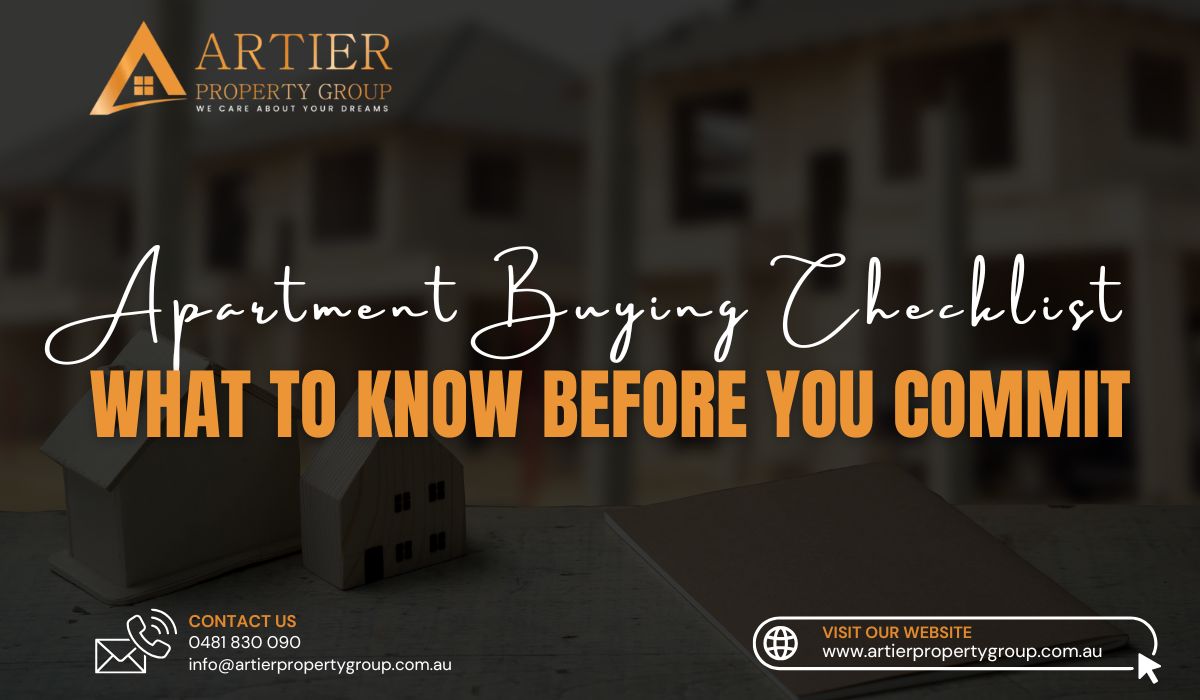Buying an apartment is an exciting step, whether you’re securing your first home or adding to your investment portfolio. Apartments often offer a great lifestyle close to the city, but they also come with a unique set of considerations that go beyond the price tag.
To help you avoid hidden costs and ensure a smooth ownership experience, we’ve compiled a comprehensive checklist of the most crucial factors you must investigate before signing on the dotted line.
1. Ask about Strata Fees (or Owners Corporation Fees)
When you buy an apartment, you typically buy into a strata scheme, which means you share ownership of the building’s common property. Strata fees (also called levies) are charged annually to cover the cost of repairing and maintaining shared areas like hallways, gardens, and lifts.
- Impact of Facilities: Buildings with modern amenities like pools, gyms, or extensive landscaping tend to have significantly higher fees.
- Hidden Costs: Ask if the Owners Corporation has a sufficient maintenance fund. If not, a majority vote by owners can require all unit holders to contribute to a ‘special levy’ for capital improvements or unexpected major repairs.
- Key Questions to ask about finances:
- What are the annual owners’ corporation fees?
- Does the owners’ corporation have a maintenance fund?
- Is the owners’ corporation in debt?
- What is the yearly cost of building insurance?
2. Research Your Owners Corporation
The Owners Corporation (or Body Corporate) is a legal entity responsible for managing the building. This group has the power to enforce strict rules that can significantly impact your lifestyle.
- Know the Rules: Investigate their rules regarding noise, pet ownership, use of common areas, and even the type of window coverings you can install. Ensure these rules match your lifestyle.
- Check the History: Review the minutes of recent meetings to gauge the corporation’s management style. Are they relaxed, or do they require members to attend frequent meetings?
- Due Diligence: The contract of sale should contain details, but also ask the real estate agent for their insights.
3. Check Out Nearby Facilities
Apartment living often involves trading internal space for location. It’s essential to evaluate what the local neighbourhood offers to supplement your smaller living area.
- Lifestyle: Look for proximity to supermarkets, public transport, parks (especially for dog owners), gyms, bars, cafes, and restaurants.
- Investment Appeal: For investors, a great location with desirable local highlights will make the property more appealing to renters.
4. Look for a Car Parking Space
Car parks are a premium commodity, particularly in city or high-density areas.
- Designated Space: Always prioritize a unit that has a designated car space included on the title. Confirm whether it is an allocated space or part of the title deed, as this affects ownership rights.
- No Car? If you don’t drive, check the availability of public transport. Also, familiarize yourself with the parking situation for when visitors come to stay.
5. Consider Storage
Space is one of the biggest challenges in apartment living, making storage crucial.
- Internal vs. External: Check if the apartment title includes access to an external storage cage, often located in the car park or basement.
- Alternatives: If not, you’ll need to get creative with internal storage solutions or investigate nearby self-storage facilities and factor that cost into your budget.
6. Suss Out the Neighbours
The people you live closest to will have a large impact on your quality of life. While you can’t choose them, you can assess the building’s general atmosphere.
- Building Atmosphere: Ask the agent about the common demographic. Is it predominantly owner-occupied, full of students, or suited to young families? A block near a university might be louder than one in a quiet residential area.
- Walkthroughs:Schedule multiple inspections at different times (e.g., weekday morning vs. Friday evening) to listen for noise transfer.
- Before buying, consider:
- Noise – can you hear people in other apartments?
- Odours – can you smell animals, dampness, or rubbish?
- Light – will you have access to a window or balcony with natural sunlight?
- Air – does your apartment have enough windows and free-flowing air?
7. Learn About Waste Disposal
Waste and recycling procedures differ significantly between complexes, ranging from old-fashioned wheelie bins to modern garbage chutes.
- System Check: Research the system the building has in place. Some are more efficient and environmentally friendly than others. A poorly managed waste system can lead to odors or pest issues.
8. Vacancy Rates and Short Stay Accommodation
If you plan to live in the apartment, it’s important to understand the occupancy structure of the building.
- Community Vibe: Inquire about the vacancy rate; a high number of empty apartments can impact the overall community feel.
- Short-Stay Rentals: Ask if any units are being used for short-stay rentals (like Airbnb). These can lead to transient residents, presenting noise and security concerns for long-term occupants.
9. Assess the Security
Apartment complexes typically have more people moving through them than detached houses, making security a primary concern.
- Modern Features: Newer, larger complexes often have advanced security features like swipe cards for access, security cameras, pass codes, and sometimes even a live-in building manager or guard. These features offer greater peace of mind but will contribute to higher annual fees.
- Older Buildings: Be mindful that dated or smaller apartment blocks might have very little to no security.
10. Structure and Layout
Unlike a house, extensively renovating an apartment is often difficult due to needing approval from the Owners Corporation and adhering to structural restraints. Therefore, the apartment needs to meet your needs from day one.
- Structural Health: Look for red flags such as cracking, mould, or broken sealants, which could indicate structural or water penetration issues.
- Noise Insulation: Check if the materials are the walls are solid? Does the unit have carpets or hard floors? This will give you a good idea of how well the unit insulates against noise from outside and adjacent units.
- Layout: If you are not completely happy with the design, it is best to continue your search, as making major layout changes will be a costly and potentially restricted process.
By using this checklist, you’ll look beyond the glossy marketing photos and make a truly informed decision, ensuring your new apartment is the perfect fit for your lifestyle and budget.
If you’re planning to buy an apartment, browse our available properties for sale or get in touch with Artier Property Group for expert guidance. Call us on 0481 830 090 and let our team help you find the perfect apartment that suits your lifestyle and investment goals.





